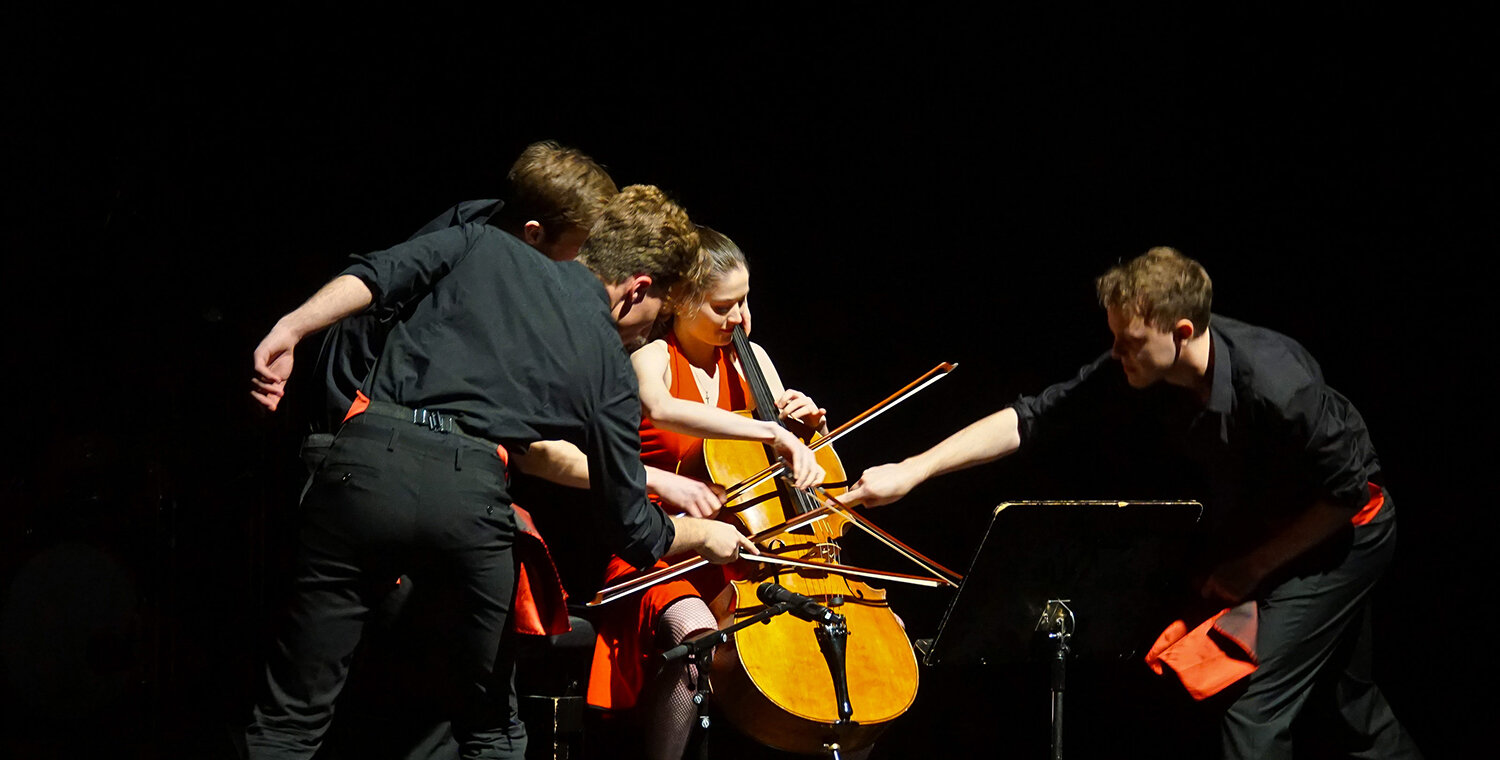
BA Secondary Education (Gymnasiallehramt)
In cooperation with the Universities of Tübingen and Konstanz, the Trossingen University of Music offers a comprehensive and coordinated programme of study in music for secondary school (Gymnasium) teachers with a second subject at the University or the emphasis subject jazz and popular music. The first eight semesters conclude with a Bachelor of Music, which both qualifies students for the Masters programme in Secondary Education and opens up artistic perspectives. The subsequent four-semester Masters programme in Secondary Education (Master of Education) qualifies students for the preparatory service (Referendariat)
Structure of the study programme
The study programme Gymnasiallehramt Musik (Secondary Music Education) is divided into an eight-semester Bachelor programme and a four-semester Masters programme. The eight-semester Bachelor of Music (Gymnasiumlehramt) programme in music includes artistic, musicological, and pedagogical areas of study and qualifies students for a Masters programme. It includes a further academic subject that can be studied at a nearby university in Baden-Württemberg. Currently, there are corresponding cooperation agreements with the universities in Konstanz and Tübingen. In Trossingen, the emphasis subject Jazz and Popular Music can be studied as a secondary subject (It is recommended to start this emphasis by the fifth semester at the latest). The Bachelor degree is followed by a four-semester Master of Education.
Fields of Study
- Performance Practice
- Music Theory
- Media
- Teaching Methodology
- Musicology
- Educational Sciences
- Secondary Major Subject or Emphasis Area Jazz aand Popular Music
- Elective modules
The area of educational sciences is offered entirely at the Trossingen University of Music.
Available instruments
- Voice
- Piano, Organ, Accordion
- Guitar
- Violin, Viola, Violoncello, Double bass
- Flute, Oboe, Clarinet, Saxophone, Bassoon
- Trumpet, French Horn, Trombone, Tuba
- Percussion Instruments
- Historical Keyboard, Lute, and Guitar Instruments
- Other instruments on request
Possible combinations
- First Artistic Subject Instrument (except piano): secondary artistic subject Piano, third artistic subject: Module Voice - Singing and Speaking.
- First Artistic Subject Voice: secondary artistic subject Piano and optionally another instrument or the module Vocal Studies - Context Voice.
- First Artistic Subject Piano: secondary artistic subject: Module Voice - Singing and Speaking, as well as either another instrument or the module Piano - Context Keyboard Instrument.
Study regulations for Bachelor of Secondary Education
At the beginning of the winter semester 2019/2020, study plans and module handbooks with the addition "2020" will come into force for newly enrolled students. In addition, students who are still studying according to the examination regulations for state examinations have the option of completing their studies according to these examination regulations until summer 2022.
BG-I-21 Bachelor's degree in secondary education (in German)
BG-II-21 Bachelor's degree in secondary education with emphasis in jazz and popular music (in German)
BG-I-20 Bachelor's degree in secondary education, 2020 (in German)
BG-II-20 Bachelor's degree in jazz and popular music, 2020
To the study regulations 2015 and earlier study programs Gymnasiallehramt
Study and examination regulations (in German)
Information about the Teacher Training Program
Teacher Training in Baden-Württemberg (only in German)
Orientation test and internship (expired link)
Information about the orientation internship (only in German)
Information about employment opportunities (expired link)
Student Teaching (only in German)
School internship information from Rottweil (only in German)
School internship semester abroad (404 Error)